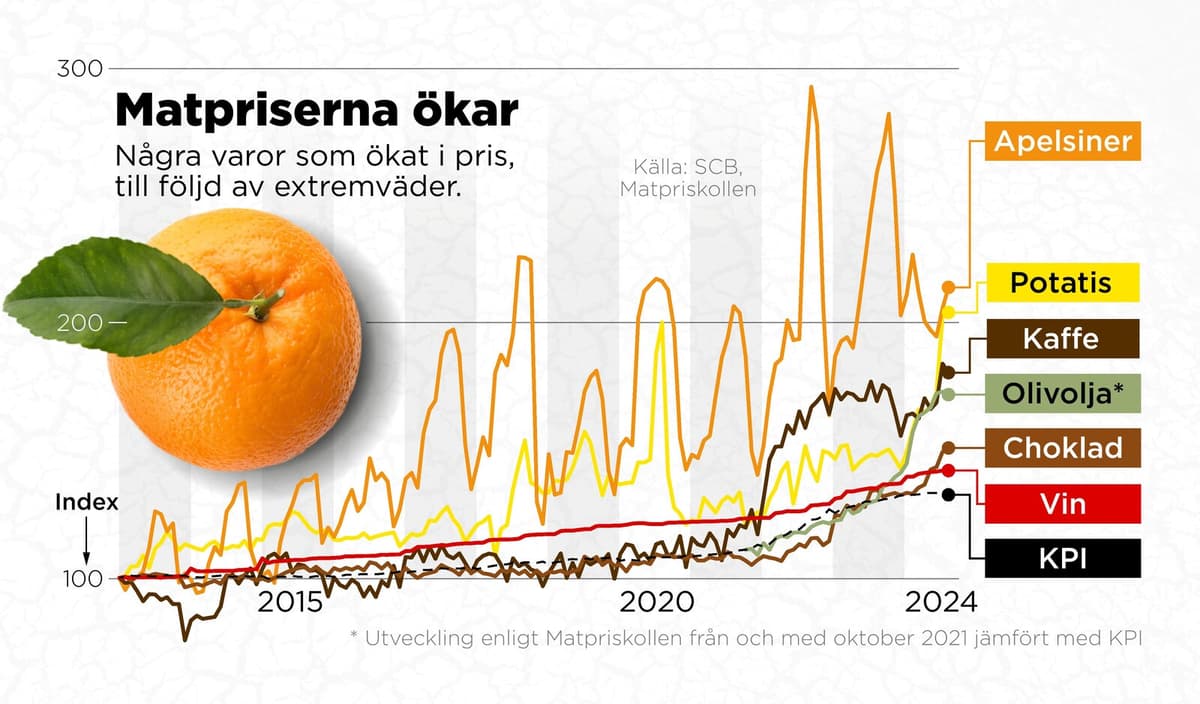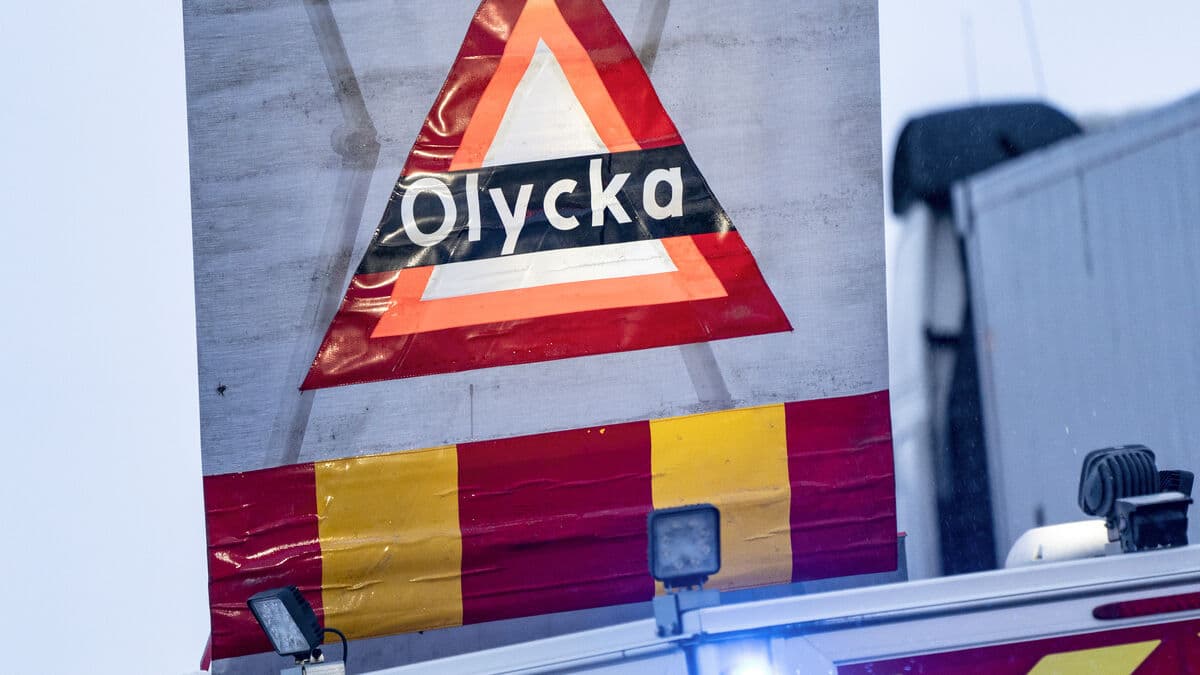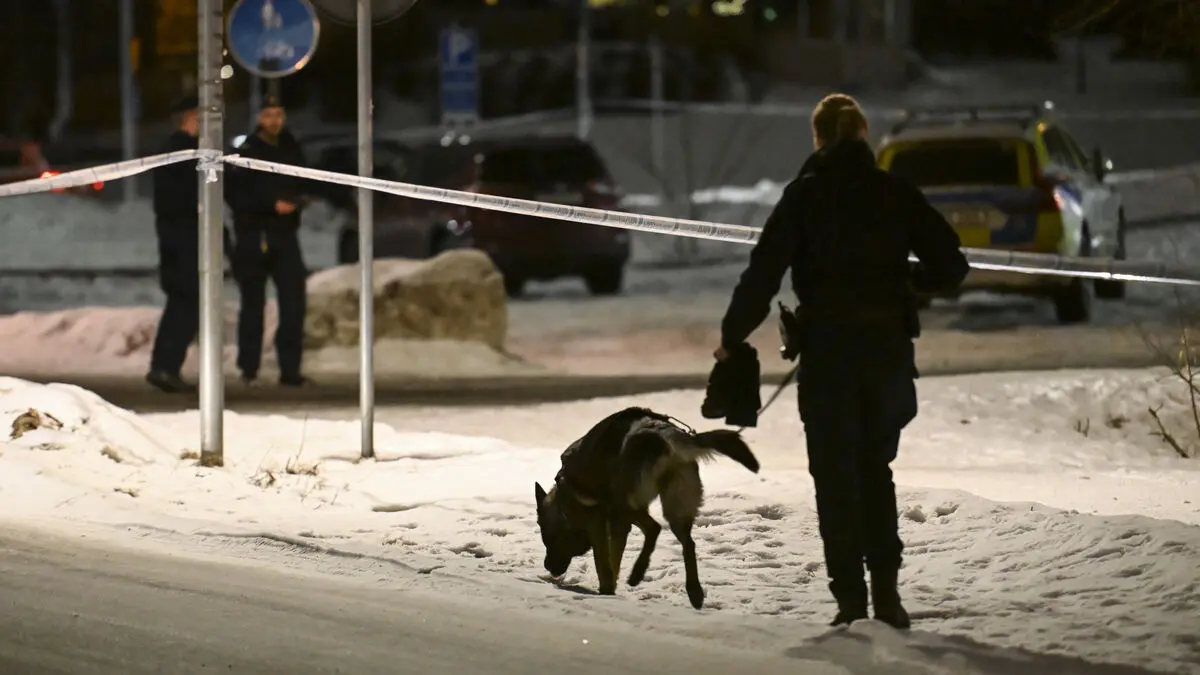In recent years, heatwaves, droughts, and floods have plagued several parts of the world, causing concerns for farmers.
We're getting more extreme weather, and more attacks from pests. Food production is already being affected, and will be even more affected in the future, says Elin Röös at SLU, who researches the environmental and climate impact of food.
Here are some products that have already seen price increases:
Oranges
It looks like it's going to be a dark year for oranges in Brazil, which accounts for three-quarters of global production. The 2024-2025 harvest is expected to be around 24 percent lower than the previous season, according to a forecast from Fundecitrus. The reason is heatwaves, droughts, and a citrus-attacking bacterium. Orange juice prices have already skyrocketed, with Mintec's reference price for concentrate having risen by 120 percent in April compared to the previous year.
Chocolate
More than half of the world's cocoa is grown in Côte d'Ivoire and Ghana, and cocoa is also sensitive to climate change. West Africa was hit by rain during the fourth quarter of last year, leading to diseases that caused the cocoa beans to rot. Between July 2022 and February 2024, the global market price rose by 36 percent, according to the UN agency Unctad.
Olives
Heatwaves in the Mediterranean region have hit olive growers hard, and olive oil prices have skyrocketed. On the Spanish olive oil market in Jaén, you had to pay 902 euros (10,225 kronor) for 100 kilos of extra virgin olive oil in mid-January, according to the International Olive Council. This can be compared to 201 euros (2,278 kronor) in January 2020, and is also noticeable on store shelves. The price has, however, dropped significantly this year, and the harvest in Spain is expected to be better this year, which is expected to dampen prices.
Wine
Extreme weather hit wine growers hard last year, including fungal outbreaks, which caused global wine production to drop 10 percent, to the lowest level since 1961, according to the wine organization OIV. In France, the concerns have continued this year, while things look better in, for example, Italy.
Coffee
Coffee farmers in Vietnam have had a tough time, despite growing the robusta bean, which is considered more climate-resistant than arabica. Coffee plants have collapsed in heatwaves and drought, and robusta prices have skyrocketed. Arabica beans have been dragged along, despite the fact that harvests in some places look better.
Potatoes
Potato harvests have been washed away in many parts of Europe. Last year, 650,000 tons of potatoes were lost and remained in the wet fields or were destroyed elsewhere, according to the North-West European Potato Growers (NEPG). Swedish farmers were also affected last year, first by early summer drought and then by record-high rainfall, and the harvest was seven percent lower than the five-year average, according to the SCB.






